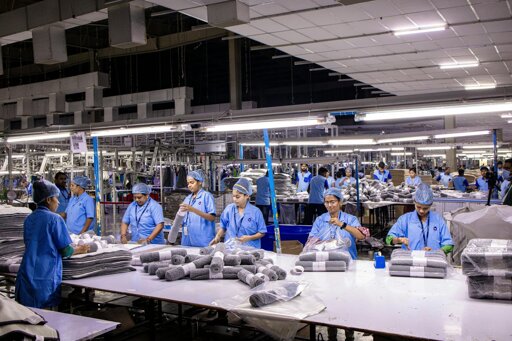Your boss is lying to you. Unions don’t cause offshoring.
For as long as workers have tried to organize, bosses will threaten workers with a nuclear attack. They proclaim that a union will force the closure of a plant and force them to move it to a non-union region or even a different country. This threat is especially powerful for the manufacturing sector because unorganized workers may think they have only two choices: a lousy job or no job. In many rustbelt areas, bosses have closed plants for decades, so the threat can seem powerful and credible.
A threat to offshore a plant can be very damaging to an organizing campaign, so organizers must confront it head-on. If you’re talking with workers, you’ll need be prepared to talk about how secure the facility is and how important it is to the overall company structure.
Top questions to ask about offshoring your facility
Start with corporate research. Consider these questions about your facility, then push back.
Is the facility unique?
If the facility is unique — for example, the only one that produces a certain product — then the threat of closure is less credible. If other facilities do similar work, there are other considerations that could still block a closure.
Is the facility strategically located?
Consider the facility’s location. Is the plant located in a particular area because it is close to raw materials? Is it close to a transportation network that will help get raw materials into the plant and get the finished product out?
If the facility’s location is strategic, that means it is less vulnerable to outsourcing. In Baltimore, the Sparrows Point steel plant closed in 2012. The mill was located on a peninsula with a deep-water port, railroad connections, and immediate access to the interstate up and down the East Coast. Since the closure, many new facilities, like Amazon and Home Depot, have moved in, and there are now an estimated 13,000 workers. The site is so strategic for distribution up and down the coast that these companies will not move.
Another critical element of location is access to public transportation: With so many workers unable to afford cars, getting to work on a bus or a metro is important, and companies will locate accordingly, so moving may not be an option.
How old is the facility?
If the building is new with updated technology, it will be too expensive to close and move everything. Bosses will threaten to move the facility as though it’s cost-neutral, but they’re not in business to spend money on a costly move.
How big is the facility and the unit you are trying to organize?
If the facility is one of many in a corporate structure, other facilities may be too small to absorb all of the work that the company claims is threatened by your organizing campaign.
How skilled is the work in the facility you are organizing?
If the work is high-skilled, bosses struggle to replace all of the workers in a new location, so a threat to close is probably be empty. Even if the work is less skilled, there are now dramatic labor shortages in many regions due to Trump’s immigration enforcement operations. It may not be possible to move a facility that is fully staffed.
Trump’s implementation of tariffs may also affect a corporate decision to close or move a plant to another country. These penalties seem to change almost every day, so an organizer needs to carefully follow the news.
Are there legal restrictions against moving the facility?
Many states offer incentives for companies to relocate, but there are also restrictions that can prevent the company from closing without severe financial penalties. Do your research and find out if your target may be blocked from moving because it received these financial subsidies. These could be “public documents” that may be hard to uncover — it will likely require dedicated research, but it’s time well spent.
Bill Barry is a retired organizer and the author of “From First Contact to First Contract: a Union Organizers Handbook.”


a company will ALWAYS lie… never trust them, they don’t care about anything but raping you and making profit. anything they say is untruthful always.